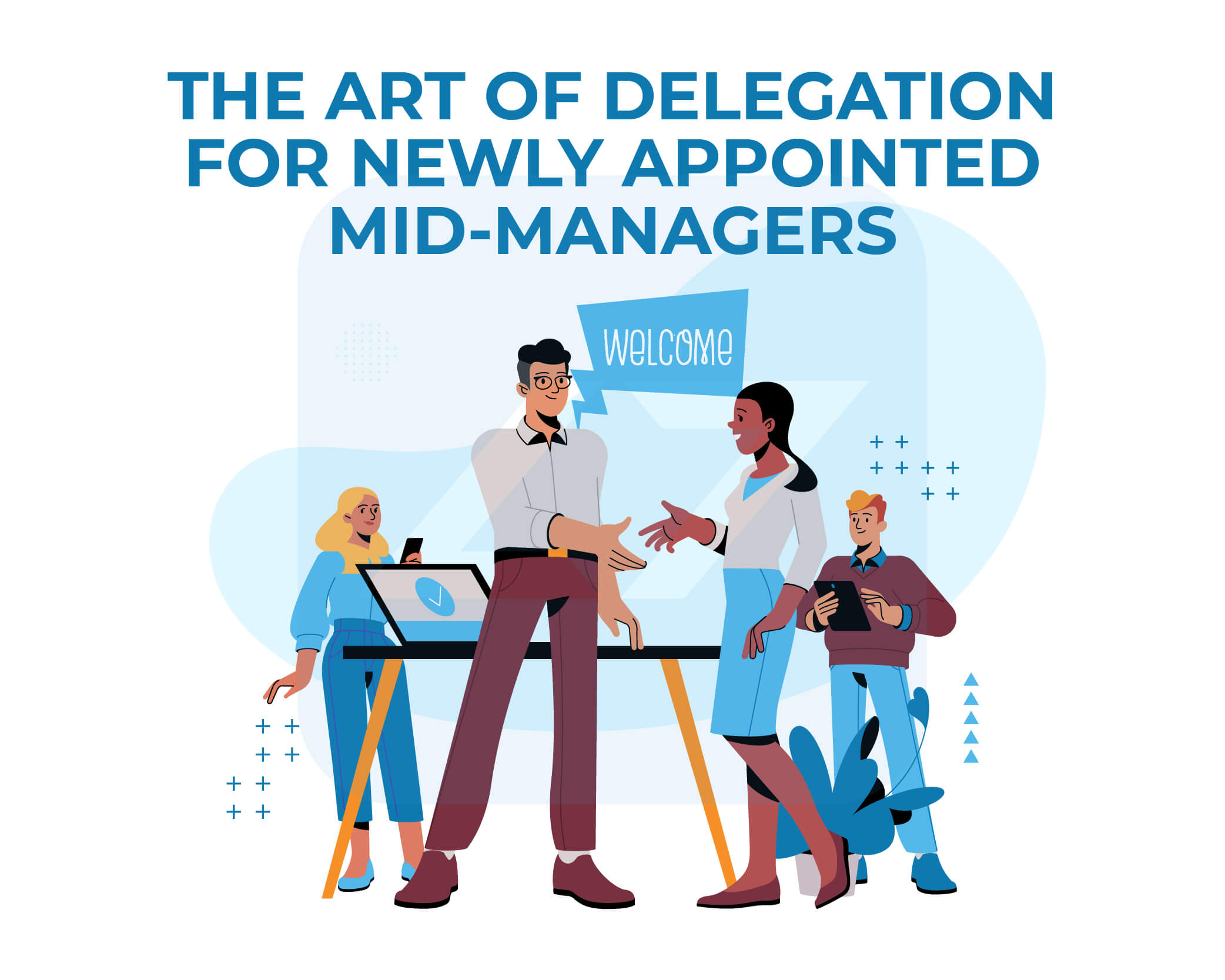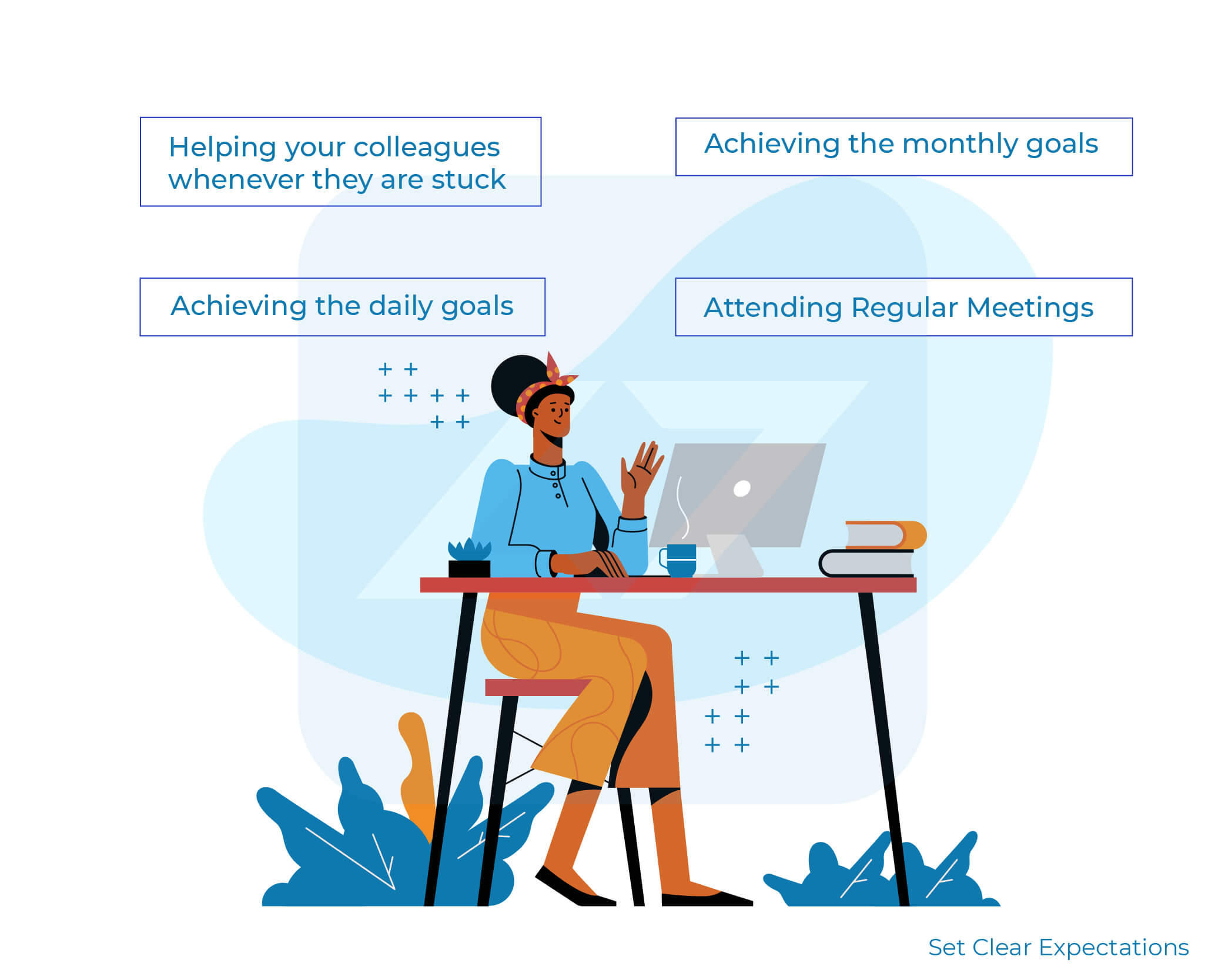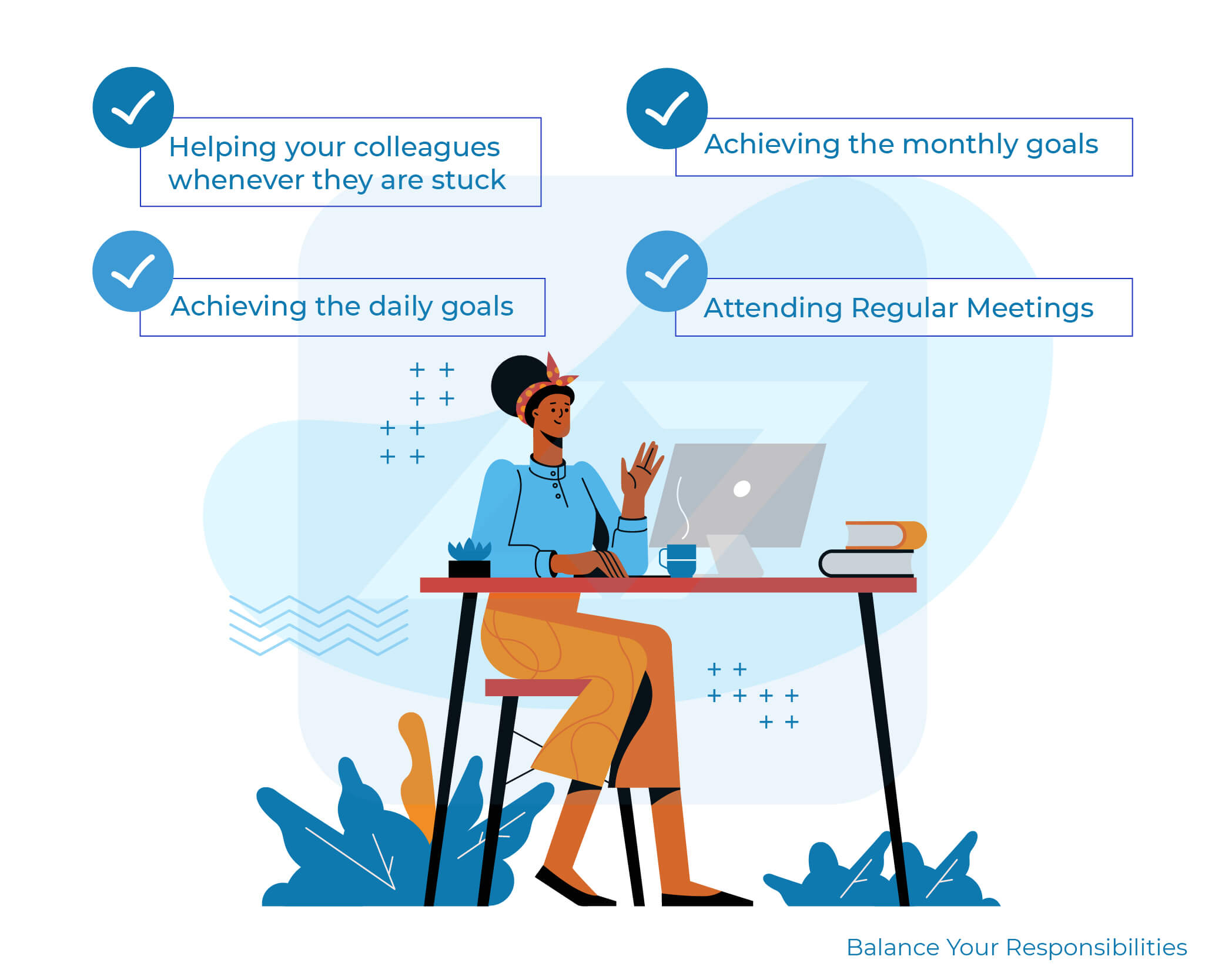The Art Of Delegation for Newly Appointed Mid-Managers

Hello there, those who can’t catch a break with all those emails you’ve been CC-ed in!
This is a special shoutout to all the millennials at the back, because you are what you are now – The Incredible Middle Management. Being a part of middle management can be overwhelming, there’s no sugar-coating it, but it does come with a particular perk, that if you do it right, would turn your game around a complete 180 degrees! That’s right – The Art of Delegation!
Tell me this, do you often think, “I’m not sure if {insert team member name} will do this right. I think it’s better if I do it myself.” or maybe, “Ugh, there isn’t enough time, I think it would be better if I did this myself.” even sometimes, “I don’t want him to quit because the task is overwhelming – I think I’ll just do it myself.”
Well, you’re not alone. A lot of new mid-managers battle these self-sabotaging thoughts. Unfortunately, if you end up doing everything yourself, you’re stagnating your team’s growth and worse – you’re stagnating your own. How, you ask? Effective delegation gives someone the opportunity to take up a high priority task, while it allows you to strategically plan things, learn something new, and create more growth opportunities for yourself AND your team! Best of all, the process of effective delegation actually lets you recognise talents in the team, creates leadership opportunities for everyone, and you can eventually find your own successor!
Having said that, delegation is an art, which means, it’s not necessary that everyone has the best practices down pat. One of my biggest mistakes was that each time I delegated a task, I would keep nudging for frequent updates. It used to create unnecessary pressure, and sometimes an irritable outburst from my juniors, sometimes causing late deliverables, because I would interject to correct the tiniest error. My CEO, Vishal, when I took this concern to him, told me that I “need to trust the team and allow them to make mistakes”. Right as he was, I learned to step back and let my team learn from their mistakes, and I watched them grow from it. The beauty of this was that I got a chance to take up higher responsibilities, because my team would get better at everything I took to doing myself.
Through this blog, I thought I should share a few tried and tested ways for successful delegation. Here we go!
Table of Contents
1. Know your team members well

It’s important to know the strengths and weaknesses of your team members. Identity their skills, and delegate tasks that they will appreciate – now or later in their career. Also, delegate smartly – the enthusiastic gen-z young intern who wants to be in PR can begin with scheduling meetings, while your senior copywriter takes a briefing call for a new client.
2. Set Clear Expectations

Ambiguity doesn’t help any relationship – even your work ones, no matter what the SOP. When delegating a task, always help teams and all parties involved with details and objectives that can help unify their efforts toward the completion of the goal. Design a flow, state the expected outcome and of course, the glue that holds all projects together – the deadline!
3. Give them the freedom to work

I’ve learned that giving people the freedom to work, to make decisions, make mistakes, helps them grow from it. It’s important for your growth as a manager too. It is also essential to give people access to the proper resources – I recall in my previous job in a telecom firm, I was asked to inspect the quality of a cell site. I didn’t have any SOP on quality check parameters, or any information about the constructors of the cell site. Of course that didn’t end well, given that my report had so many loopholes. It is incorrect to expect good or accurate output from your team when they aren’t given the resources they need.
4. Don’t be a nag

“Are you done with the task yet?”, “What’s the status….?”, “Can I take a look at the progress…?” – STOPPPP! Don’t get after this person’s life. Don’t expect constant updates, give the person their space and don’t micromanage!
5. Balance responsibility, accountability with authority

Leadership has various styles, but it’s the best ones that give others the authority as well as the chance to be accountable. The worst ones, stifle your team and ensure they quit. I remember, in my previous organisation, I was given accountability for very few projects. Everything needed my manager’s approval, I had no freedom to make any decisions, and I learned very little. Eventually in my career today, I have learned that when there is accountability placed on someone’s shoulders, a surprising leader may emerge from the crowd. Think about all the vacations you can have!
6. Give consistent feedback

For some not-so-good managers, this is the perfect opportunity to go on a blame-placing spree. Nobody likes a bully. Whenever you delegate, ensure your feedback is both consistent and constructive. Check in with them on a calendarised basis to not just have a status update, but to boost their confidence or encourage them toward growth, productivity and a happy mindset.
7. Say ‘Thank you!’

Last but not least, say thank you, and mean it. Showing gratitude and appreciation releases dopamine in their brains because it gives people a sense of achievement. Sometimes, there’s nothing better!
In conclusion, leaders are not supposed to do all the work on their own. So, get up there and dust yourself off, Millennial, because you’re already doing a good job. The Art of Delegation needs some practice, so why not give a few of these a go and see how happy it makes you!

















